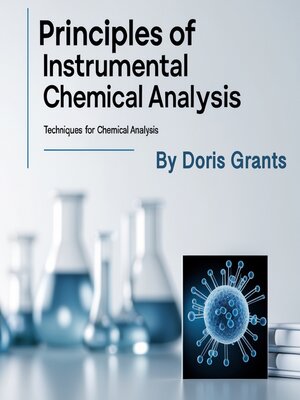Principles of Instrumental Chemical Analysis
audiobook (Unabridged) ∣ Techniques for Chemical Analysis
By Doris Grants

Sign up to save your library
With an OverDrive account, you can save your favorite libraries for at-a-glance information about availability. Find out more about OverDrive accounts.
Find this title in Libby, the library reading app by OverDrive.



Search for a digital library with this title
Title found at these libraries:
| Library Name | Distance |
|---|---|
| Loading... |
Instrumental chemical analysis is a cornerstone of modern scientific investigation, enabling precise, accurate, and efficient determination of chemical composition across a wide range of materials. This chapter introduces the fundamental principles, scope, and significance of instrumental methods in chemical analysis, distinguishing them from classical approaches and outlining the major categories of instrumentation used in the field.
The importance of instrumental techniques lies in their ability to provide rapid and reproducible data with minimal sample usage. While classical analytical methods such as titration and gravimetry are still valuable, they often fall short in sensitivity, specificity, and scalability. Instrumental methods address these limitations by using sophisticated equipment to detect and quantify substances based on their physical or chemical interactions. These interactions may involve the absorption or emission of electromagnetic radiation, separation based on chemical properties, or measurement of electrical signals.
Instrumental analysis covers a broad spectrum of techniques, each with unique mechanisms and applications. These techniques are generally classified into categories such as spectroscopic, chromatographic, electroanalytical, thermal, and mass spectrometric methods. Spectroscopy involves the interaction between matter and electromagnetic radiation, providing insights into molecular structure and concentration. Chromatographic techniques are essential for separating complex mixtures into individual components for identification and quantification. Electroanalytical methods utilize electrical signals to analyze chemical substances, while thermal analysis evaluates changes in physical properties with temperature. Mass spectrometry, one of the most powerful tools in analytical chemistry, allows for the identification of compounds based on mass-to-charge ratios.






